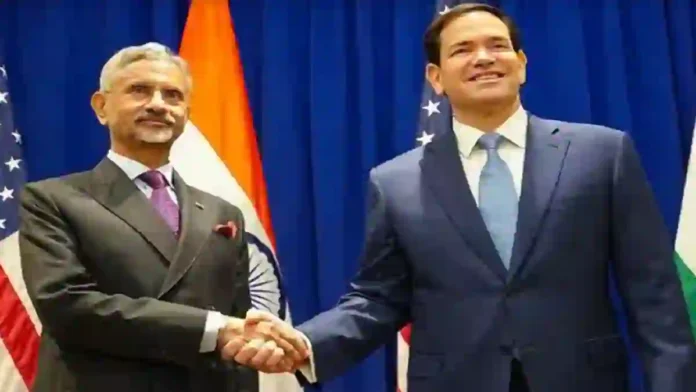US Secretary of State Marco Rubio indicated that the Trump administration could reconsider the steep tariffs it imposed on Indian trade earlier this year. The 25 per cent increase, levied in response to India’s continued purchases of Russian crude oil, had effectively doubled duties on India to 50 per cent—one of the highest globally. Rubio suggested that “this is something we hope we can fix” while acknowledging India’s importance as a trade partner and strategic ally.
The Trump administration has maintained a hard stance against countries importing Russian energy resources, aiming to restrict Moscow’s revenue streams during its prolonged conflict in Ukraine. India’s continued reliance on discounted Russian oil triggered Washington’s tariff response. However, Rubio signalled that adjustments could be made as global energy security conversations evolve and as India remains central to Washington’s Indo-Pacific strategy.
Read- Russia Will Complete Deliveries of S-400 Missile Systems To India In 2026
Rubio was critical of what he described as selective enforcement of sanctions in Europe. Speaking to NBC News, he noted that several EU states continue to purchase “massive” amounts of Russian gas and oil, which undermines the unified pressure campaign against Moscow. He argued that the United States should not bear the entire burden of enforcing sanctions while European economies continue energy ties with Russia.
Despite renewed pressure on Russia, Rubio revealed that President Donald Trump remains “deeply disappointed” with President Vladimir Putin’s trajectory in Ukraine following their Alaska summit in August. At the same time, he reiterated Trump’s long-standing line that he “didn’t start this war but has only tried to end it.” Rubio also hinted at new possible sanction measures, suggesting the administration still has tools at its disposal to increase pressure on Moscow.
Rubio’s remarks came after his meeting with Indian External Affairs Minister S Jaishankar on the sidelines of the United Nations General Assembly in New York. Jaishankar described their discussions as covering a “range of bilateral and international issues of current concern” and emphasised the importance of ongoing dialogue. Rubio characterised India’s role as “critical” to Washington, noting the significance of trade interactions and cooperation beyond the tariff dispute.
Read- Indian Army Plans Major Expansion of Vehicle-Mounted Infantry Mortar System Fleet
Read- How India Could Benefit From Europe’s 6th-Gen Fighter Jet Programs For Future Air Superiority
In parallel to high-level diplomatic discussions, Commerce Minister Piyush Goyal met US Trade Representative Jamieson Greer. The talks centred on advancing the first tranche of a new bilateral trade agreement, underscoring that both governments seek outcomes beyond tariff disagreements. The move reflects continuity in economic engagement and efforts to rebalance the strained trade equation.
Rubio also took the opportunity to underscore Trump’s positioning of the United States as a central peace broker worldwide. He pointed to past US initiatives in regions such as Thailand, Cambodia, and South Asia, where Trump claims to have helped settle tensions, including between India and Pakistan. However, New Delhi stressed that its recent agreement with Islamabad on cessation of hostilities was the result of direct military-to-military dialogue at the level of the Directors General of Military Operations (DGMO).
The suggestion that Washington may ease tariffs on India points to a recalibration in US-India relations at a time of great-power competition over Russia and China. By coupling softer language toward India with a sharper push for Europe to strengthen sanctions, Rubio positioned Washington as both pragmatic and assertive. The outcome of this balancing act will likely shape the trajectory of US–India ties in the coming months, with trade negotiations serving as an immediate test case and Russia’s war in Ukraine as the larger strategic backdrop.
Based On TOI Report
Agencies




